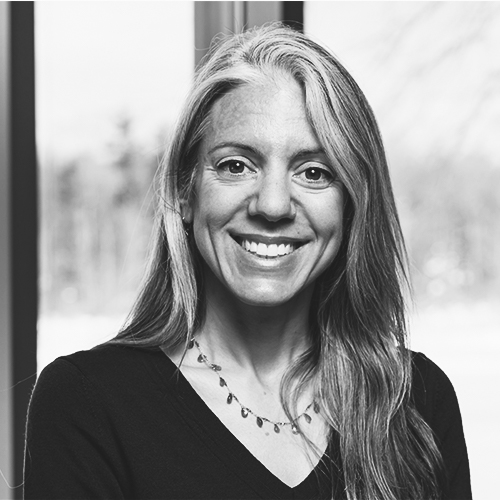Amanda Rodewald is the Senior Director of the Center for Avian Population Studies at the Cornell Lab of Ornithology, a Faculty Director at the Cornell Atkinson Center for Sustainability, and a professor in the Department of Natural Resources and the Environment in the College of Agriculture and Life Sciences, Cornell University. She is also a fellow of the American Association for the Advancement of Science and the American Ornithological Society and serves on the Science Advisory Board of the U.S. EPA. Professor Rodewald’s work integrates ecology, conservation biology, participatory science, and social sciences and has resulted in over 185 scientific publications, more than 70 popular articles, Congressional testimony, and innovative approaches to conserve biodiversity while accommodating social and ecological needs.
Almost done! Check your email to get your password.
BirdCast
Perspectives on Migration Monitoring in the Era of Big Data
Thursday, February 18, 2021, 12pm
EST
Event Overview
Thanks to data collected by citizen scientists and the U.S. weather surveillance radar network, we’ve been able to gain amazing insight into the lives of birds. We can forecast where, when, and how many birds will migrate, then observe these movements in near real time on a continental scale.
BirdCast is a collaborative project that leverages the expertise of computer scientists and ornithologists to harness the power of big data to study movements of birds. Birds truly represent dynamic and global communities, and recent trends in methods and analyses showcase what may be the future of bird migration research and conservation to study birds' complex roles in terrestrial, aerial, and aquatic systems.
In the age of big data and observation, the potential of what remains for us to learn is inspiring. In this session, we will highlight how big data has allowed experts to develop models to forecast bird migration, predict bird-aircraft collisions, study impacts of light pollution on nocturnally migrating birds, and investigate long-term changes in migration systems. This knowledge also allows us to estimate bird mortality and recruitment, and to even study the movements of other animal species.
The series “Reimagining Citizenship” features scholars, writers, and artists whose work interrogates the limits and possibilities of legal, social, and cultural belonging. Through book talks, roundtables, and presentations, we consider how multidisciplinary, multispecies approaches to the study of migration open up new understandings of citizenship, borders, and social transformation. Organized through Cornell University’s Migrations Global Grand Challenge.
Image credit: August Davidson-Onsgard / Macaulay Library at the Cornell Lab of Ornithology (ML155039781)
BirdCast is a collaborative project that leverages the expertise of computer scientists and ornithologists to harness the power of big data to study movements of birds. Birds truly represent dynamic and global communities, and recent trends in methods and analyses showcase what may be the future of bird migration research and conservation to study birds' complex roles in terrestrial, aerial, and aquatic systems.
In the age of big data and observation, the potential of what remains for us to learn is inspiring. In this session, we will highlight how big data has allowed experts to develop models to forecast bird migration, predict bird-aircraft collisions, study impacts of light pollution on nocturnally migrating birds, and investigate long-term changes in migration systems. This knowledge also allows us to estimate bird mortality and recruitment, and to even study the movements of other animal species.
The series “Reimagining Citizenship” features scholars, writers, and artists whose work interrogates the limits and possibilities of legal, social, and cultural belonging. Through book talks, roundtables, and presentations, we consider how multidisciplinary, multispecies approaches to the study of migration open up new understandings of citizenship, borders, and social transformation. Organized through Cornell University’s Migrations Global Grand Challenge.
Image credit: August Davidson-Onsgard / Macaulay Library at the Cornell Lab of Ornithology (ML155039781)
What You'll Learn
- The significance of understanding migrating birds as global communities
- How computer scientists and ornithologists harness the power of big data to study movements of birds
- The role of citizen scientists in collecting data for monitoring bird migration
- How researchers forecast bird migration
Speakers
Amanda Rodewald
Senior Director of the Center for Avian Population Studies
Cornell Lab of Ornithology
Senior Director of the Center for Avian Population Studies and Faculty Director at the Cornell Atkinson Center for Sustainability
Andrew Farnsworth
Senior Research Associate, Center for Avian Population Studies
Cornell Lab of Ornithology
Senior Research Associate, Center for Avian Population Studies, Cornell Lab of Ornithology
Andrew Farnsworth is a Senior Research Associate in the Center for Avian Population Studies at the Cornell Lab of Ornithology. Andrew began birding at age 5 and quickly developed his longstanding fascination with bird migration. His current research efforts advance the use and application of rapidly expanding technologies to study bird movements across scales including weather surveillance radar, audio and video recording and monitoring tools, citizen science data sets, and machine learning techniques. Andrew received his B.S. in Natural Resources from Cornell University, his M.S. in Zoology from Clemson University, and his Ph.D. in Ecology and Evolutionary Biology from Cornell University.
View Keynote by completing the form below.
Gain access to this free event
Thanks,
You're Registered!
You're Registered!
Join or sign in to tailor your experience and earn CEUs from Cornell.
Create Account

